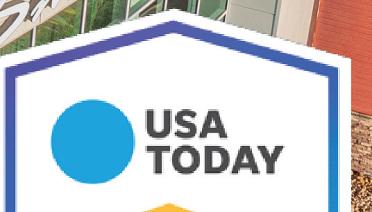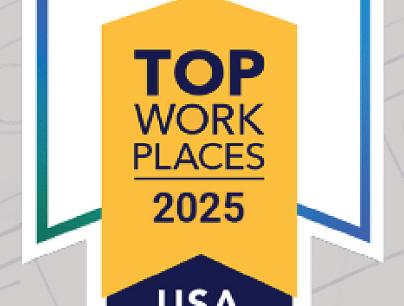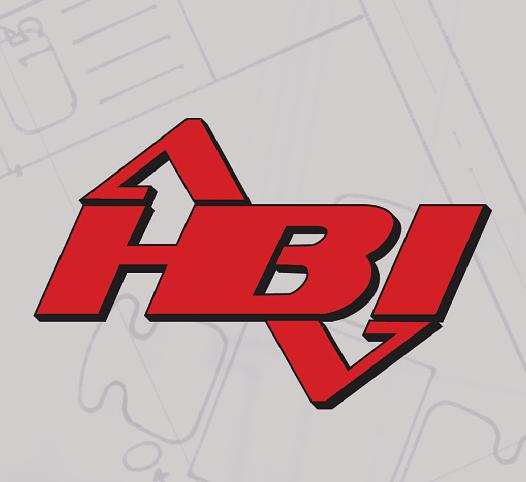














Top employers competing with both pay and benefits
MICHAEL SCHROEDER
Special to the State Journal
Diverging employee survey results show employees can be both happy about pay and underwhelmed by benefits. That was a top takeaway from the 2025 Madison Top Workplaces employee survey data, particularly when employees were asked what they felt positive about over the past year, with surveys wrapping up around the beginning of December.
“It’s really interesting that the most positive change was about pay — and the most negative change was about benefits,” said Bob Helbig, media partnerships director for Energage, which conducts employee surveys used to select Top Workplaces. Sentiment around pay and benefits tends to track together — “usually those things go hand in hand,” Helbig noted — but not so in the latest local results.
Energage gauged employees’ positivity (or lack thereof) around a variety of factors, based on their agreement with simple statements. For example, “My pay is fair for the work I do.” For that one, 65.5% of the participating Madison-area employees who responded to Energage’s workplace surveys were positive, up 2.2% percentage points from 63.3% the previous year. It was the biggest change in a positive direction across more than 20 factors measured, ranging from whether employees get the formal training they want for their career (71.2% felt positive about

that, up 0.6 percentage points from the previous year) to if they had a “manager who cares about my concerns” (83.4% positive, nearly identical to the previous year’s result of 83.5%).
By contrast, just over half of employees were happy about their benefits relative to what they perceived they might get elsewhere. That was based on their agreement or disagreement with the statement, “My benefits package is good compared to others in this industry.” The positivity score among surveyed employees was 52.2%, down 4.7 percentage points from 56.9% for the previous year.
No follow-up questions were asked to drill down into why workers in the region might be more pumped about pay — or at least OK with it — and yet decidedly less enthusiastic about benefits. Still, some universal themes are likely at play, according to Helbig.
To start, even as payroll is the top expense for employers, benefits are getting costlier all the time. “Companies face a challenge certainly around health care costs — and employees have high expectations for benefits,” Helbig said. As insurance premiums and medical costs continue to rise, that cost pressure on employers and employees is only increasing. Employers might pay more for insurance while still passing on an increasing amount to employees in the form of high deductibles and other cost sharing.
“I think that’s going to remain a big challenge for every company in terms of what benefits they are offering, how generous those benefits are and how they are meeting the needs of employees,” Helbig said.
Experts say what benefits are available and how to access them is something every employer can do to improve the employee experience as well.
Tanya Hubanks, director of the Strategic Human Resource Management Center at the Wisconsin
“ Our outlook on that is that there’s no perfect answer … organizations need to look at specific roles and specific circumstances to figure out what makes sense.”
Bob Helbig, Engergage
School of Business in Madison, adds that understanding what individual employees want is also important, whether it’s paid time off to volunteer (VTO) or a better 401K match.
But employers must go further to communicate effectively what’s offered, she emphasized. “Pay is easy, right? You know what it is. It’s what’s in your paycheck.” But with benefits, there’s so much that can go into it, Hubanks said, and different people look at it differently.
While it might not always be placed squarely in the benefits category, work-life balance is nearly universally valued by employees, according to the Top Workplace surveys. In the Madison region, 80.5% agreed that they had the flexibility they needed to balance their work and personal life. But many still feel like they will fall behind if they take time off or have trouble disconnecting outside of work, Helbig said.
“The biggest obstacles to work-life flexibility include self-imposed expectations, heavy workloads, last-minute requests, customer expectations and understaffing,” he noted.
“This suggests deeper cultural
and organizational changes to truly support employee work-life flexibility.”
Many managers and employees are also struggling with bigger workloads as employers try to get more done with less staff. Across the country, “hiring has cooled, so I think organizations are dealing a lot right now with how to get the most out of their people,” Helbig said.
That means employees are acutely aware not only of work creeping in on their personal lives, but when they’re not being as productive as they could be on the job. To that end, many aren’t convinced they should be in that meeting at all. Put another way, just 65.9% of employees surveyed in the Madison area agree: “Meetings at this company make good use of my time.”
Coming or going?
While some attrition is a reality for all employers, ignoring employees’ needs and wants as it relates to everything from benefits to work-life balance can be especially costly.
Where a lot of employers are having remote workers return to the office, for example, many employees still prize having some flexibility — like a hybrid
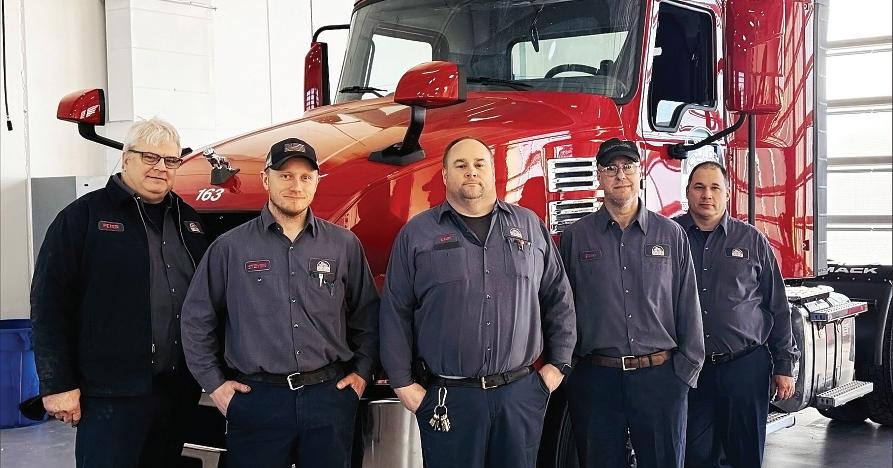
















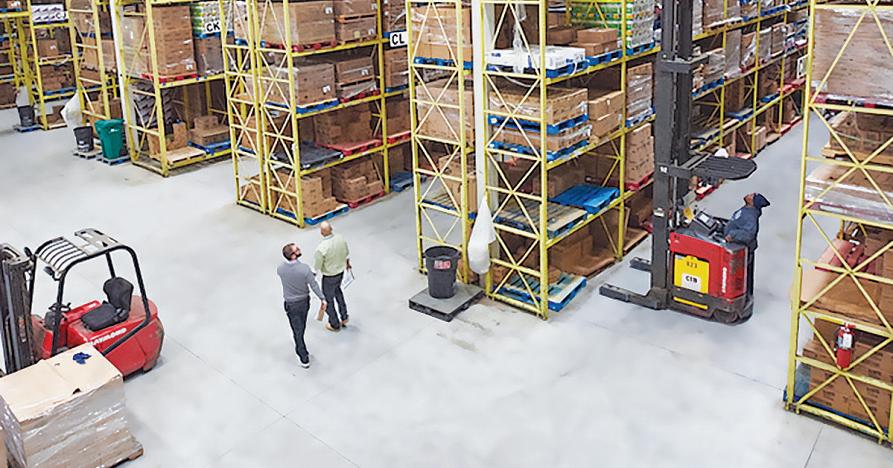
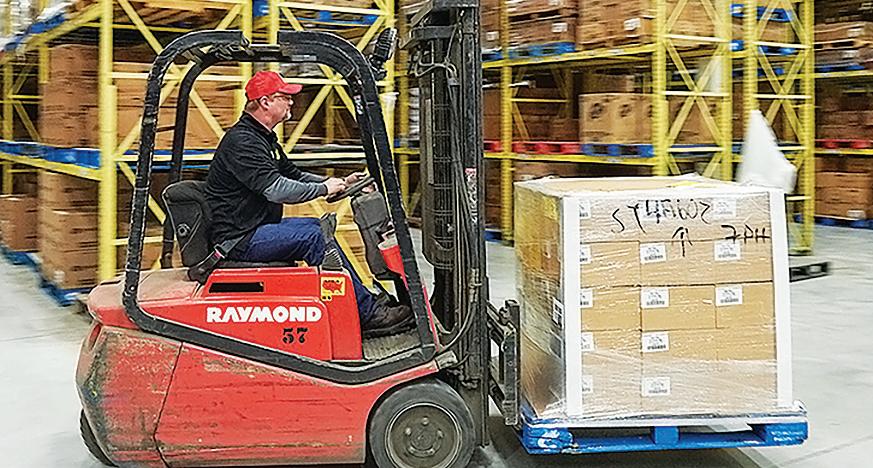

Reports from front lines fuel rankings; no cost to employers
BOB HELBIG Energage
If you want to really know what’s happening at work, ask the people on the front lines.
That’s the foundation of the Top Workplaces award. For the seventh year, employee survey company Energage has partnered with the State Journal to honor the best places to work in the Madison region.
This award can’t be bought; it has to be earned, based on employee feedback. Winners are chosen through a scientific survey process. Positive employee feedback equals recognition. Workplaces that don’t have strong feedback are excluded from the
winners list.
Energage crunches the data based on a 25-question survey that takes just a few minutes to complete. The survey asks employees for their feedback on such factors as pay and benefits, direction, leadership, meaningfulness, and appreciation. Energage scores companies based on the responses.
Organizations do not pay any fees to survey employees or to earn a Top Workplaces designation. If they choose, organizations can purchase the survey data. There is no obligation for winners to purchase any product or service.
For the 2025 winners list, 1,416 organizations were asked to survey their employees, and 106 agreed to do so. Based on the survey feedback, 81 have earned recognition as Madison Top
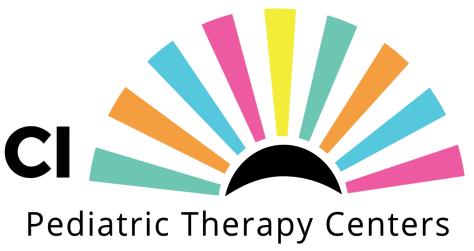





Workplaces.
“Top Workplaces awards are a celebration of good news,” said Eric Rubino, CEO of Energage. “They exemplify the significance of a people-first workplace experience, reminding us that employees are the heart of any thriving organization.”
The winners list is intended to reflect on the regional workforce. To qualify for Top Workplaces recognition, employers must have at least 35 workers in the region. Survey results are valid only if 35% or more employees respond; employers with fewer than 85 employees have a higher response threshold, requiring responses from at least 30 employees.
Employers earn Top Workplaces recognition if their aggregated employee feedback score exceeds national benchmarks. Employers are grouped into
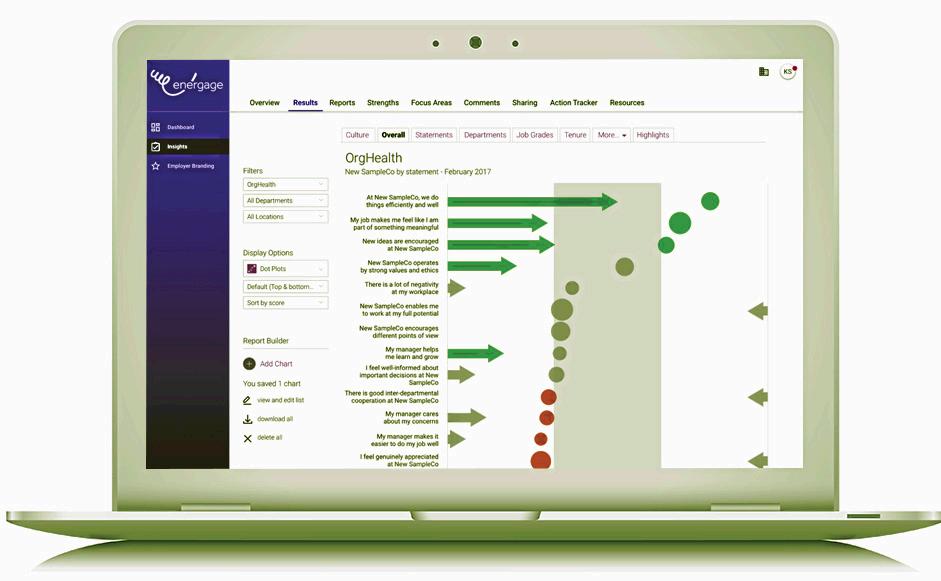
similar sizes to best compare similar employee experiences. Energage has established those benchmarks based on feedback from about 30 million employees over 19 years. They are ranked within those groups based on the strength of the survey feedback. Why might a particular employer not be on the list? Perhaps it chose not to participate, or perhaps it did and employee feedback scores were not strong enough. Energage also runs tests on survey feedback and in some
cases may disqualify an organization if, for example, a high number of employees said they felt pressured to answer positively.
To participate in the 2026 Top Workplaces awards, or for more information, go to the nomination page at topworkplaces.com/ madison.
Bob Helbig is media partnerships director at Energage, a Philadelphiabased employee survey firm. Energage is the survey partner for Top Workplaces.














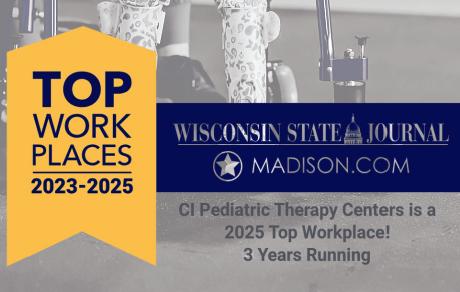
Employees’ faith in execs earned special awards
MICHAEL SCHROEDER
Caring for the mental health of clients requires a lot from counselors like Kelly Michiels-Weldon at Trailways Counseling, whether she’s providing outpatient services virtually or at the Waunakee office or helping people in communities throughout the region.
Especially when work demands digging deep, employees say having reliable, caring leaders who have their backs is critical.
“I think that it’s important in this field because we do deal with people who are in crises, so it can be really isolating,” Michiels-Weldon said. “You need to know that you can call on someone just to get help and support.”
Michiels-Weldon and Jill Symanski, a therapeutic mentor at Trailways, said they have just the kind of supportive team dynamic that gives them confidence in the leadership there. Their sentiment is clearly shared by others at Trailways, where partner and director of operations, Angie Grogan, won the special award for leadership among small organizations.
In addition to being accessible to team members, Grogan has drawn on her background in software development to ease administrative burdens.
“Angie and the team designed our own notetaking system — in addition to hiring extra people to help us with our case notes,” Symanski said. She points out that others on the leadership team — partners JoAnn M. Geiger, clinical director, and Sarah Grogan, director of business development — draw on their backgrounds to support the team.
“We believe in the power of a strengthsbased team,” Angie Grogan said.
In fact, the Top Workplaces special award for leadership reflects that employees have

“We believe in the power of a strengthsbased team.”
Angie Grogan, Trailways Counseling director of operations
“confidence in the leadership team” where they work. Based on that, Jeff Lenz, president and CEO at NCG Hospitality, and Steve Jacobson, founder and CEO of Fairway Independent Mortgage Corp., won the leadership special award for large and midsize companies, respectively.
Leading by example — and making sure employees have a voice
Of course difficult — even unpopular — decisions must sometimes be made by leaders. But employees and managers say that to feel supported and for workers to buy in, people at all levels of the company need a voice.
It all starts with listening and getting the opinions of others before making any decision, Jacobson said. Those who work at Top Workplaces also laud leaders for allowing employees to be who they are while giving clear guidance on what’s expected.
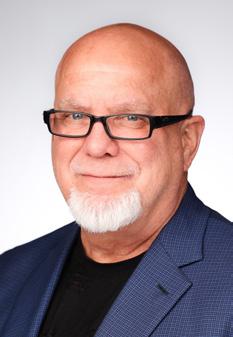
“It’s good to let people run in their lanes in safety without interference. We all learn from what we do. If teammates are safe to be themselves — whatever happens is merely a learning experience.”
Steve Jacobson, Fairway Independent Mortgage founder and CEO
“Creating an environment where teammates can be themselves is important,” Jacobson said of his approach to leadership.
“We all have strengths and weaknesses,” so he said, “It’s good to let people run in their lanes in safety without interference. We all learn from what we do. If teammates are safe to be themselves — whatever happens is merely a learning experience.”
Employees said leadership at NCG, including Lenz, also allows them the autonomy to grow and develop, while emphasizing the importance of working together.
“It comes down to trying to develop, through our mission and core values, a
Please see LEADERS, Page 6




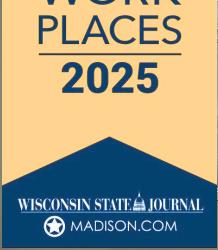


From 5
great culture where we have really highly engaged team members that understand the connection between what they do and the success of not only that individual hotel, but what we do as a company overall,” said Lenz.
Employees, in turn, take their cue from leaders.
“Jeff leads by example, operates with integrity, and is genuine and authentic in everything he does,” said Kari Kruchten, executive administrative manager at NCG Hospitality. She added that Lenz acknowledges and is appreciative of employee contributions and empowers staff by giving them the resources and tools to do their jobs effectively.
Some employers' traits are extra special
Top Workplaces special awards speak to what’s at the core of a positive, productive company


"(It's important that team members) understand the connection between what they do and the success of not only that individual hotel, but what we do as a company overall.”
ncG hospitality cEO Jeff Lenz
culture where employees thrive. They gauge employee agreement with a variety of statements like, “I believe this company is going in the right direction.” Based on responses, companies are honored as exemplars — like Stoughton Health — which got the special award for direction.
“We believe those survey statements, for which the awards are based on, are really meaningful measures of the workplace experience,” explained Bob Helbig, media partnerships director for Energage, which conducts employee surveys.
“In addition to honoring companies as Top Workplaces for their overall scores, we choose to single out companies that have exceptionally high scores in specific survey areas. Chief among them are
the leadership awards. We strongly believe that all good things within an organization start with great leadership,” Helbig said.
Accordingly, the leadership special award is given to not just one but three organizations — one small, one midsize and one large company.
It’s not just the top executive that an employee thinks about in regards to leadership, either. It’s also their experience with a direct manager that can raise or lower the quality of their work experience. Energage asks employees if they agree that, “My manager helps me learn and grow. My manager cares about my concerns.” Based on a high rate of positive responses to that statement, West Bend Insurance Company won the special
award for managers.
In total, 16 Top Workplaces special awards winners are honored (including those three companies that won for leadership) in 14 different categories. That includes the new ideas special award given to Fall River-based metals manufacturer EK for encouraging new ideas; the values special award given to an organization operating by strong values — convenience store and gas station chain Kwik Trip; the communication special award denoting that employees, “feel well-informed about important decisions at this company” won by Madison-based Wind River Payments; and the work-life flexibility special award given to Madison-based life sciences company Promega.
Whatever the workplace culture is like — whether a company excels or struggles in specific areas — it’s a safe bet that at most companies the tone is set by leadership. There’s strong correlation between the leadership award winners and where the companies rank on the Top Workplaces list, Helbig said.
From 2
arrangement that allows them to work from home and avoid a heavily trafficked commute at least a couple days a week.
“Our outlook on that is that there’s no perfect answer … organizations need to look at specific roles and specific circumstances to figure out what makes sense,” Helbig said. The same could be said for any number of factors affecting employee satisfaction — which ultimately impacts retention and performance.
“What we do know,” Helbig emphasized, “is that the organizations that are willing to be flexible and experiment are going to attract employees that will want to work there and give their best.”

The best workplaces inspire their people to make a difference. Recognized as a top workplace, Promega is dedicated to fostering growth, resilience, and creativity-transforming challenges into innovations that shape a better future.

Grow your potential at a top workplace. Explore Promega Careers >





Benefits t o help you o wn your bes t future
Competitive health and dental insurance, retirement plans, paid time off and more
Career de velopmen t
More than just a place to work a place to grow and thrive
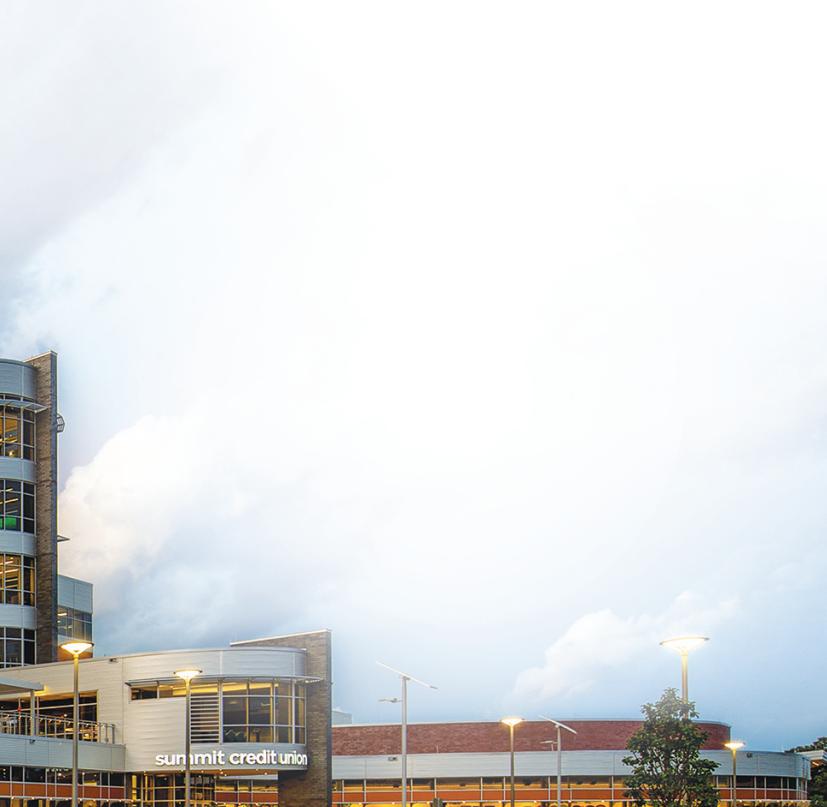





Work/lif e balanc e
Flexible scheduling and a range of resources to support your overall wellness
Tuition assis tanc e
Student loan payback, plus tuition reimbursement for both you and your dependents





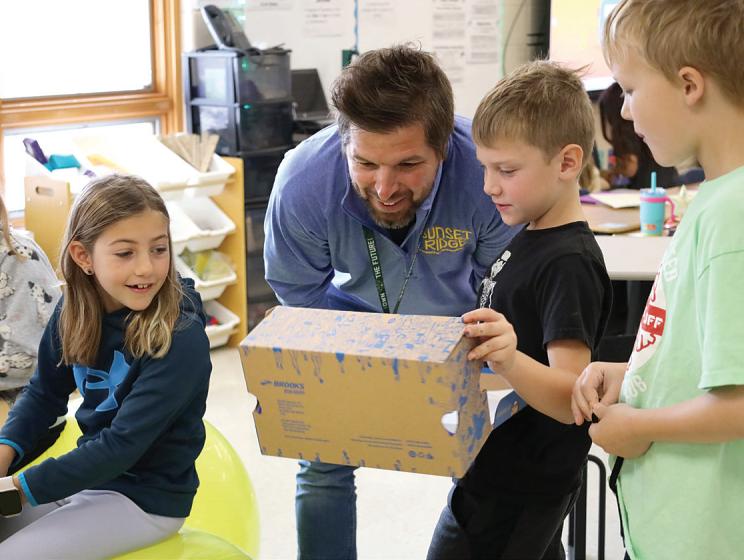

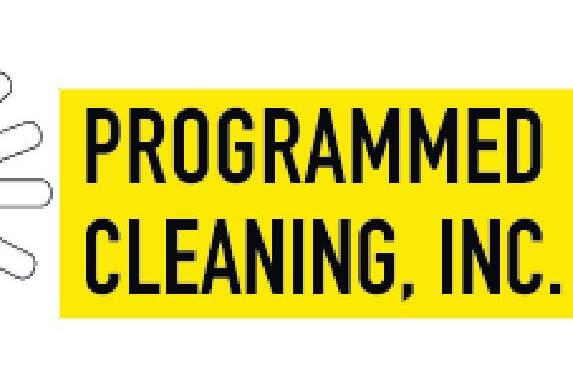
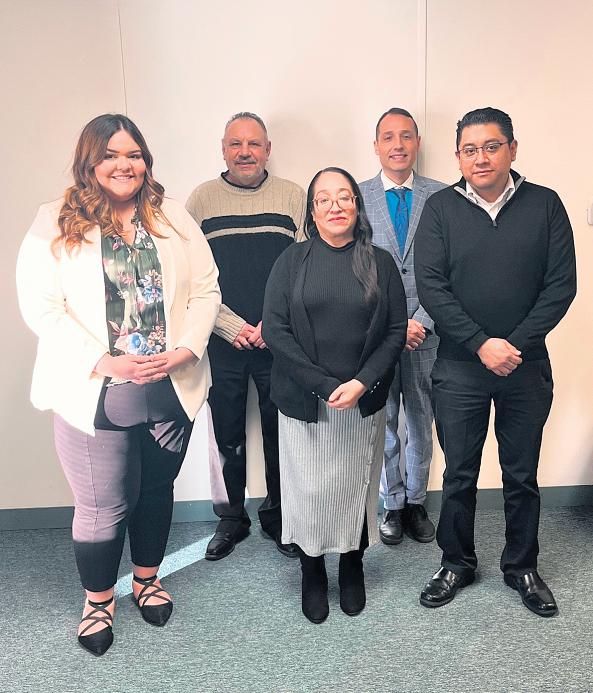
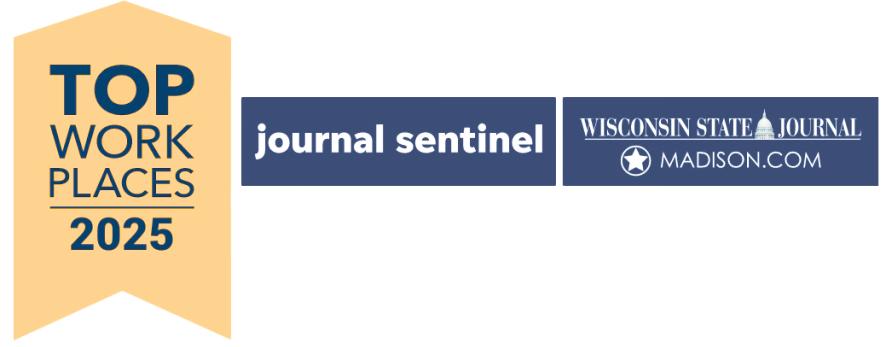


Programmed Cleaning was founded in 1960 and is a commercial cleaning contractor located in southern Wisconsin. We provide daily and periodic cleaning ser vices to many of Wisconsin’s most prestigious clients. Our clients range from:
- Corporate Offices
- Multi-tenant Buildings
- Educational Institutions
- Financial Institutions
- Manufacturing Facilities - Medical Facilities
Our philosophy of controlled and steady growth has allowed us to grow ever y year. We are proud to provide good jobs to all employees while remaining economically viable for ownership. In addition, we want our clients to know we appreciate all their business and strive to do our best ever y day.




MICHAEL SCHROEDER
Special to the State Journal
When Estefania Solache Alvarez joined NCG Hospitality as a housekeeper, she acknowledged, “It definitely was for me … just a job in the beginning.” But the family-owned company that develops and operates hotel properties is known for developing employees, too.
Rather than being only about bricks and mortar, employees say leadership actively invests in workers at all levels of the company. Employees are encouraged to try different roles, and if they’re able, shown a path to progress through the ranks. Over time Solache Alvarez began learning more about the hospitality business, she said, and at each NCG property where she worked,
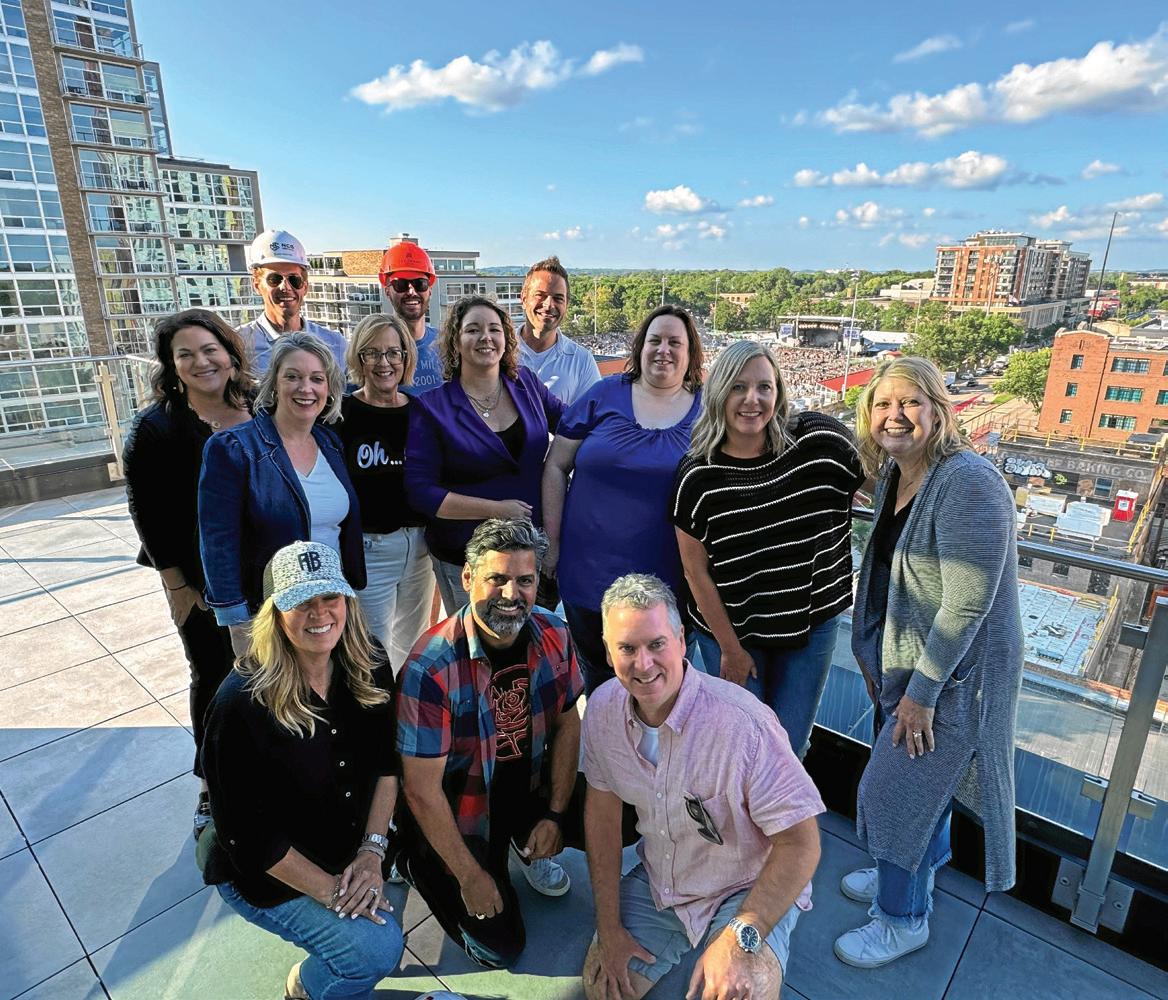
NCG Hospitality: specializes in hotel property management as well as hotel development, renovation and construction
Founded: 1977
Special award: Leadership
Madison-area locations: 1
Local employees: 607
supervisors and managers took her under their wing, expediting her learning and growth.
“I would say that’s definitely been one of the biggest reasons I’m still here almost 14 years later,” said Solache Alvarez, who is now a brand and talent manager in NCG’s corporate office. “Every manager that I’ve ever worked with really took the time to invest in me and helped me see
… you could basically do almost anything you want within the hospitality industry.”
In addition to being a Top Workplace, NCG’s president and CEO Jeff Lenz won a special award for leadership, a reflection of the confidence employees have in their top executive.
Employees like Jeff Reese, a property accountant, said Lenz — who holds regular town hallstyle meetings at NCG properties and its corporate office — does a great job of keeping everyone informed about what’s going on at the company and within the industry. “He shows genuine care and interest in all of us as a person as well as our career performance and growth,” Reese said.
MICHAEL SCHROEDER
Special to the State Journal
Before she worked at UW Credit Union, LaDaisha Washington banked at the federally insured not-for-profit financial institution.
“I was a member before I was an employee,” said Washington, an educational lending specialist in the credit union’s corporate office in Madison. In both capacities, she felt fully comfortable being herself.
“The company values align very well with my personal values,” she said. “So it was easy for me to be who I am. When they say ‘here for every you,’ I feel that 100 percent.”
Washington was impressed by how the credit union took care of its members and gave back to the community.
“It was like, ‘Wow, I want to be a part of something like that,’” Washington said.
Washington’s experience reflects comments from other employees at UW Credit Union, which was named a Top Workplace for the first time. They say the credit union lives out its community-minded core values and welcomes people of all different backgrounds, ethnicities and nationalities.
Employee resource groups like Black Excellence (BeU) are also offered.
“The reason that I helped to start BeU is because I had a great experience at the UW Credit Union. I felt like I was seen, I was able to be myself and that felt good,” Washington said. “I wanted to help create a space for other individuals that looked
At a glance
UW Credit Union: a federally insured not-for-profit that provides a full range of consumer financial services
Founded: 1931
Madison-area locations: 23, including 17 branches
Local employees: 659
like me to have that same type of experience.”
About 40% of employees are in employee resource groups (ERGs), according to the credit union. These ERGs give employees the chance to connect around various affiliations and identities, which are spelled out the group names. In addition to BeU, those include the Green

BOB HELBIG Energage
What exactly does a highperforming workplace look like? The best workplaces know their strengths and weaknesses, which helps them focus on where they excel and identify opportunities for improvement.
Company culture impacts productivity and performance. When a company has a highperformance culture, employees are motivated to go above and beyond, daily operations are more efficient, and customers feel the improvements. Recruitment and retention jump, too, when people talk about their amazing and productive culture.
Here are seven common characteristics to a high-performing workplace culture:
1. Motivating, inspirational leaders: The tone is set at the top. Motivational leaders inspire employees to reach their fullest potential. When more people are driven to achieve success, performance skyrockets.
2. Engaged and empowered employees: Companies perform at a higher level when employees are engaged. An engaged work-
From 12
He describes a culture of transparency, honest straightforward communication and mutual respect.
It’s not just the business of the day that’s communicated, either, but celebratory shoutouts for everything from birthdays to anniversaries to babies born.
“Those little things go a long way,” said Kari Kruchten, executive administrative manager at NCG Hospitality.
To stay innovative and hungry, employees need regular opportunities for training and development. Learning new skills is key for company innovation and future-proofing.
force brings together people willing to go the extra mile.
3. Strong growth mindset: Growth directly correlates with organizational and financial success. Companies must have a robust and open-minded growth mindset to perform at a high level. From entry-level employees to senior executives, it creates a culture where everyone is empowered to embrace challenges, learn together and develop innovative ideas.
4. Trust and understanding: Employees lean in when they trust the process and understand their direct impact on company performance. High performance cultures rely on leadership to motivate employees and build trust. Engaged, trusting employees see how their daily tasks contribute to company performance. And if they do not, it is the job of leadership to build trust and understanding.
5. Continuous learning: To stay innovative and hungry, employees need regular opportunities for training and development. Learning new skills is key for company innovation and future-proofing. But it’s also great for individual confidence, engagement, and retention. After all, data shows most job seekers want continuous learning.
6. Communication and collaboration: Whether it’s helping a teammate or a different department, high performance cultures are built on support. When employees collaborate and work toward shared goals, they save time. That time can then be used to think outside the box or work on another project.
7. Culture of accountability and autonomy: Defining responsibilities and timelines keeps everyone accountable and
Along with traditional benefits, like insurance, NCG also offers employees major travel perks. “It’s been really nice to be able to travel and stay at places at a super low discount or even free from time to time,” Solache Alvarez said. And when the company goes the extra mile in taking care of its team, it’s certainly not lost on employees like Kruchten.
“We’re in the hospitality business — the people business,” she said. “So taking care of our people and helping people feel good about all the things we’re doing … I think they do a really good job with that.”
From 12
Team, Helping Young Professionals Engage (HYPE), Raices Latinx, Sexual and Gender Alliance (SAGA) and Women’s Initiative Network (WIN). The groups come together monthly through volunteering membership meetings, networking events or training.
Employees are also encouraged to give back in the community with full-timers getting 16 hours of paid time off to vol-
on track. In high-performance environments, employees need to know exactly what is expected and how to properly handle slowdowns. After all, things will always pop up. How teams handle them and take responsibility says a lot about company culture and the tone at the top.
Every high-performing workplace culture is built on the same four principles: people, technology, culture and intentional organization.
1. Get the right people: People are the backbone of any organization. Hiring hungry, likeminded people who value performance and innovation makes it easier to achieve shared goals. Identify the hard and soft skills needed to succeed in your organization, and hire based on those skills. It’s about who is the most productive and who cares about your core values. Hiring employees with meaningful connections to your company vision makes success more satisfying.
2. Invest in technology: Investing in new technology and tools gives employees the opportunity to save time and learn new skills. Automating repetitive
unteer and part-timers getting eight hours of compensated volunteer time off, or VTO.
That’s important to educational lending specialist Heather Wehling who has done everything from participating in a toy drive to helping make blankets for homeless children. She finds that personally fulfilling, because allows her to do an extra thing to “fill her cup.”
But even with benefits like VTO, the best part of working at UW Credit Union might just be that everyone can come to work as they are, reiterated employees Washington, Wehling and
tasks can improve engagement and reduce burnout, keeping the whole team performing at a higher level.
3. Create a productive culture: Whether they work remotely or in person, employees need a supportive and productive culture to perform well. Their physical work environment and overarching culture must motivate people to get their work done and go the extra mile. Perks such as child care, fancy coffee machines, comfortable desk chairs, and Spotify or Calm subscriptions make people happier and more motivated.
4. Build the right processes: Structure guides employees, managers, and leaders to greatness. Clear responsibilities, communication from leadership, alignment across teams, training sessions, and confidential employee feedback channels make it easier to be efficient. By establishing standards, guidelines, and checkpoints, organizations ensure outputs meet high quality standards and identify opportunities for refinement and optimization, ultimately enhancing performance over time.
member solutions center specialist Akeem Wilkins.
“I think just our culture of allowing people to be themselves is a great perk,” Wilkins said.
The dress is business casual, but employees needn’t cover tattoos, worry about piercings or steer away from traditional dress that speaks to their heritage, Wehling added.
“We can still bring our culture and our identity to the workplace without fear of getting called out or getting spoken to about something you may value a lot,” she said.
GARY MARKLE Catalytic Coaching
“How many of you have a career?”
I love asking this question in workshops with employees. While a few raise their hands immediately, the majority often look at each other as if unsure. Even when working is done virtually, you can feel that cautious pause. But here’s the truth: Just by choosing to work, you’ve set yourself on a career path.
A career isn’t just a job; it’s a journey with purpose, meaning, and direction. It’s a job with time-based context, reflecting both history and growth. A fulfilling career doesn’t only define what you do for a living — it defines who you are.
The comedian Chris Rock once said, “With a career, there is never enough time. With a job, there is always too much time.” It’s a sentiment that resonates, especially for those who
feel stuck in what they consider “just a job.” For employers and managers, this distinction holds important insights.
Most organizations rely on a mix of routine, even menial, work — tasks that are repetitive, physical, and often demanding. But does that mean it can’t be meaningful? I believe we can elevate almost any work conversation from job to career by understanding what drives each individual and connecting with their purpose.
Take Hector, our neighborhood window washer. A man in his 60s, he’s worked six to seven days a week for decades, handling ladders and scrubbing windows, rain or shine. But what stands out about Hector is his smile and the genuine joy he finds in his work. He knows his clients by name and treats every window he cleans with the same pride. For him, it’s not just about washing windows — it’s about

giving families a fresh perspective. Hector’s job is cleaning; his career is building community.
My father spent over 30 years in the automotive industry, initially loving his work as a business manager for General Motors. But after leadership changes, those final years felt more like an endurance test toward retirement. He reached his pension goal, but his true purpose emerged only after retiring: to read every book that mattered to him — a “career” in lifelong learning that he pursued passionately to the end of his days.
I learned from my father’s experience. Watching him grind through those last years, I made a vow to never stay in a position that drained my soul. When my job at Exxon started feeling less like a career and more like a job, I moved on. That decision set me on a path to a role that’s given me almost limitless room















to grow.
How can you keep your career on track, moving toward your goals? Here are some steps to consider:
1. Do a happiness check: Are you genuinely happy and growing? Or are you just covering the bills? If it feels like a dead end, it’s time for a change.
2. Find a career coach: If you have access to Catalytic Coaching, you’re ahead of the game. Your direct manager acts as a coach, guiding you through development. If you don’t, consider hiring an executive coach to help chart your path forward.
3. Begin with the end in mind: Look deeply and ask yourself fundamental questions like, “What do I really want to achieve?” Imagine the path to get there, and start taking steps.
4. Find your special purpose: Aim for work that aligns with your talents and what you enjoy. Tools like Gallup’s Clif-
tonStrengths and Marcus Buckingham’s StandOut Assessment can help you identify what drives you.
5. Strategize for progress: If your current job doesn’t support your career aspirations, plan a path forward. Even small steps in the right direction—like moving to a different department— can set you on track.
6. Execute the plan: Every job that doesn’t contribute to your goals is just procrastination. So, take action and make it count.
If you’re ever in an audience where I ask, “How many of you have a career?” I hope you’ll raise your hand proudly and confidently. Let’s all work toward careers, not just jobs, and build futures that make us proud.
























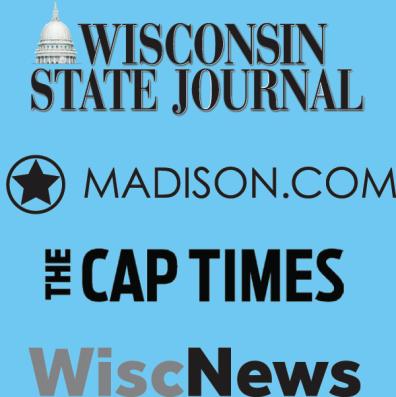







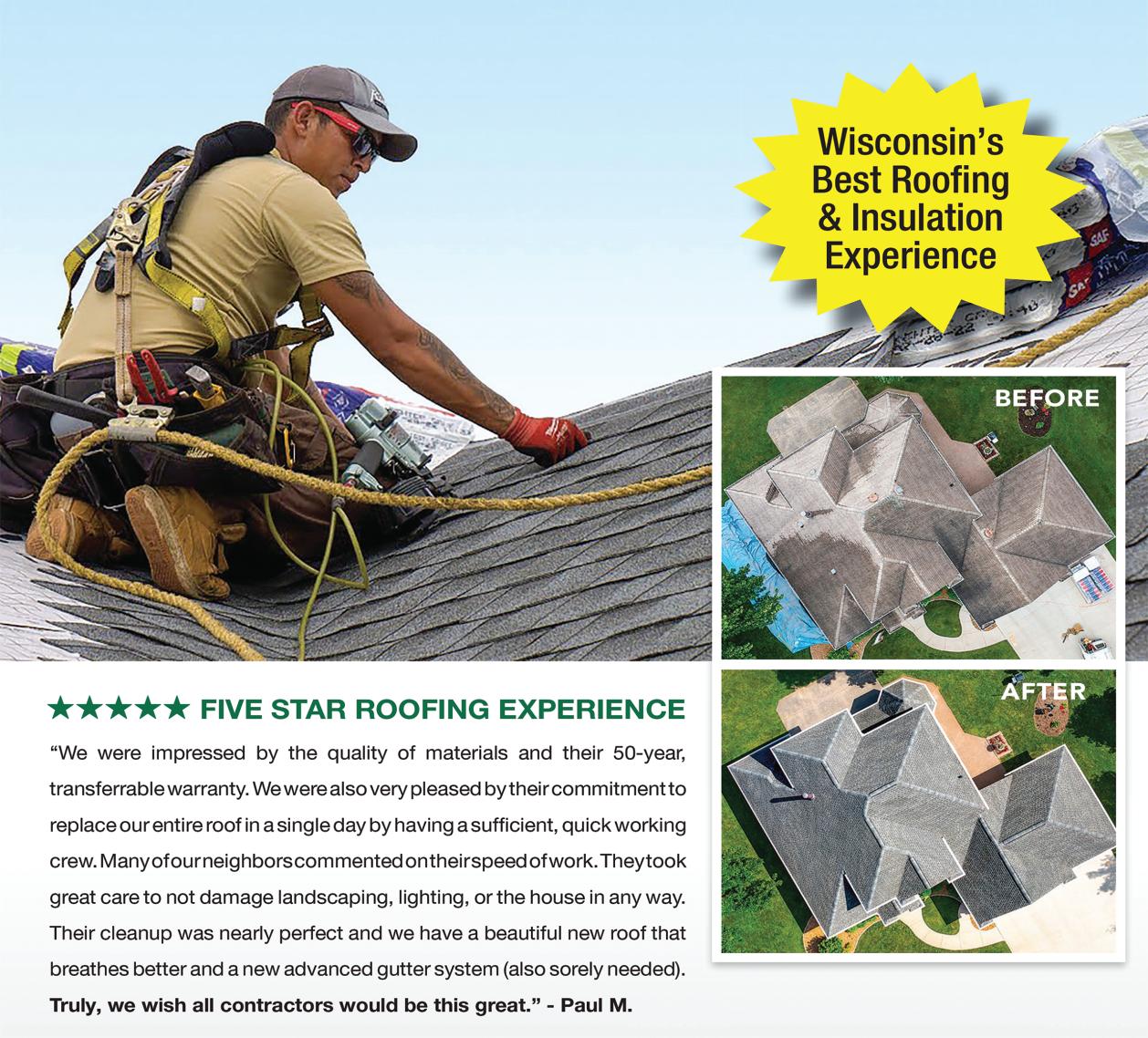











MICHAEL SCHROEDER
to the State Journal
Before Mike Davis arrived at Dane Manufacturing years ago, he’d grown accustomed to responding mechanically to a grating sound piped onto factory floors at regular intervals. But for all its practicality, he was more than happy to be saved from (certainly not by) the bell — or that infernal buzzer as it were.
“I’m 61 years old. I’ve been in manufacturing all my life, and this is the first manufacturing company that I’ve ever worked at that didn’t have a buzzer system,” explained Davis, a trainer who shows new employees the ropes at Dane. “They don’t buzz you to go to break. They don’t buzz you to get back to your machine. They trust you to be responsible, and I like that.”
He contrasts that with a previous manufacturing job where he was made to feel more like
a cog in a wheel, rather than a human being — buzzed constantly to limit breaks and squeeze every minute out of workers on the factory line. “It made me feel like they didn’t trust me — I was part of the machinery,” he recalled. “It was a terrible feeling. … It was too stiff.”
At Dane, by contrast, he and other employees describe a relaxed — yet by-the-book in regards to putting safety first — environment, where employees are comfortable joking with one another. Making employees feel that everyone from leadership to the most junior worker is all in it together is the secret sauce for this midsized employer, which was named a Top Workplace for the first time. It’s a cooperative spirit that permeates all levels of organization.
“I really like what a team environment it is. It’s not looked at as this is my job or your job. It’s
Dane Manufacturing: Contract manufacturer and metal fabricator
Founded: 1917
Madison-area locations: 1
Local employees: 163
our job,” said Tom Krumpen, a team lead in assembly at Dane. “Every department has their own responsibilities, but if there’s something you need to get done, you can count on help from anybody in the plant.”
That’s the tone set by owner Troy Berg and it extends to the factory floor, according to Krumpen and others who work there. “Everybody just is willing to work together,” he continued. “They’ll jump in, run a machine. Anybody will do anything they can to help out.” The team approach is vital to
Please see DANE, Page 18

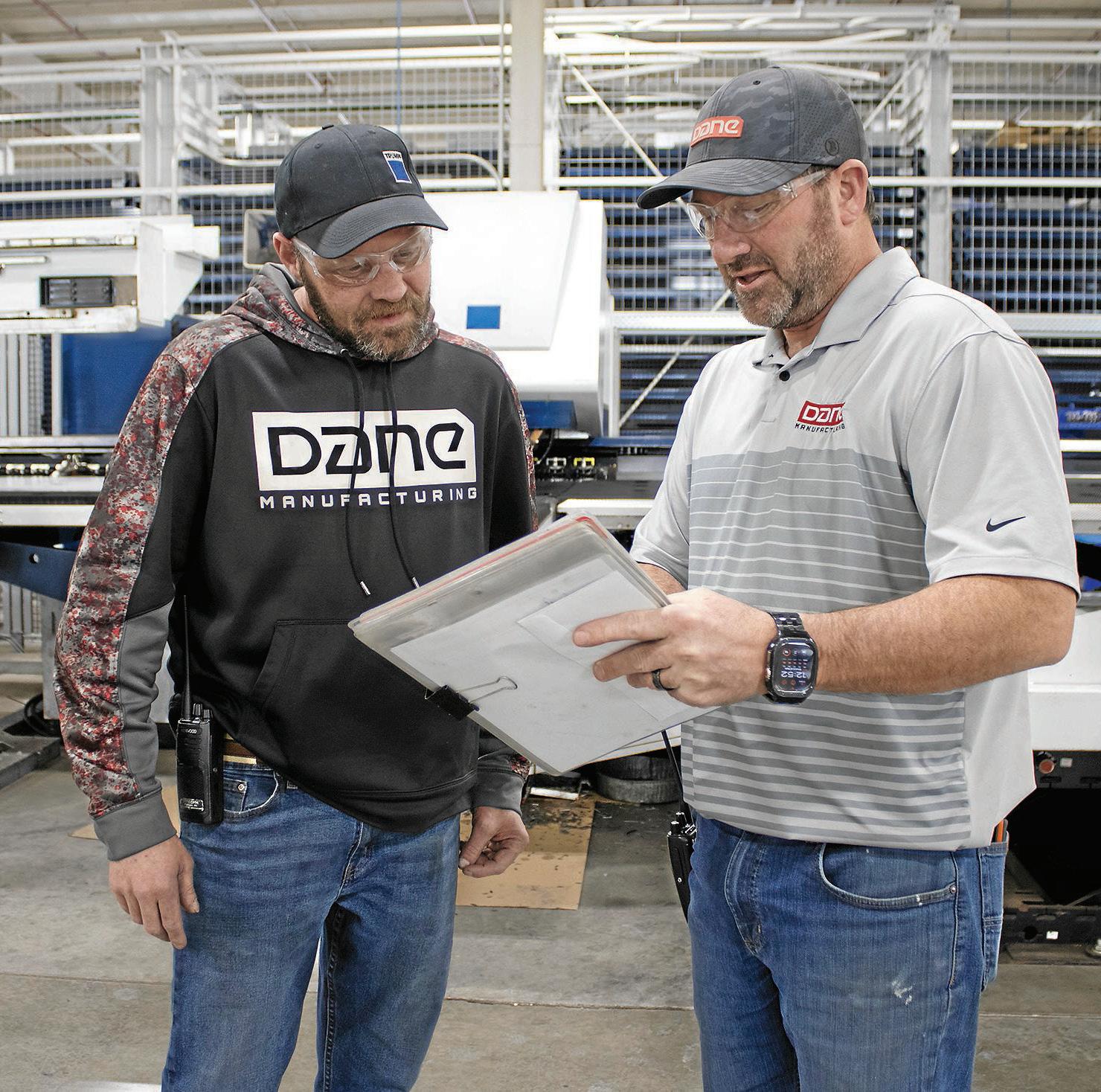
Special to the State Journal
Named a greater Madison area
Top Workplace for the fifth consecutive year, Ascendium Education Group wins high marks from mission-minded employees who have a heart for helping learners from low-income backgrounds.
“It feels really great to be in an environment where we have that shared commitment, but also everyone is just a genuinely
kind human,” said Elizabeth “Liz” McNeill, a senior writer in strategic communications at Ascendium, who joined the nonprofit about a year and a half ago. It’s a caring, accepting workplace, McNeill said, where the culture fits with the organization’s philanthropic focus, which involves helping students and families afford school and supporting upward mobility.
At a glance
Ascendium Education Group: a nonprofit focused on education philanthropy, the federal student loan guarantee agency funds initiatives that help low-income learners, students and families, pay for school.
Founded: 1967
Special award: Well-being
Madison-are locations: 1
Local employees: About 275




Earning a credential, certificate, or degree has the power to transform lives. It can lead to financial stability, a fulfilling career, and a stronger community. Ascendium’s goal is to elevate opportunities for learners from low-income backgrounds to experience that transformation.
• Award grants to transform postsecondary education and workforce training systems.
• Provide student and employee success solutions to colleges and businesses.
• Equip borrowers to successfully repay their federal student loans.
• Invest in education-focused innovations to improve learner outcomes.
Our team members are the heart of who we are and what we do Their talents, contributions, and commitment to making a difference are the reasons we ’ ve been named a Top Workplace five years in a row.
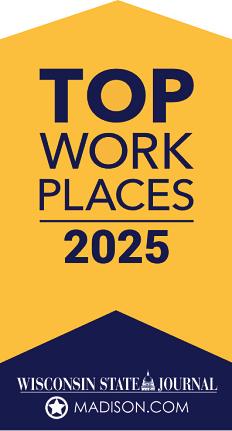
From 16
turn around customers’ orders quickly, he added.
Monthly all-company meals, where food is brought in or supervisors grill out, are also a feature of work life at Dane. Employees and managers describe a workplace where accomplishments are celebrated and workers are regularly asked for their input to refine operations and improve the overall experience.
“It’s not just dictating to the employee what you want out
of them,” said Mike Westphal, production supervisor. “It’s more of a two-way conversation [like], ‘Hey, how can I make your life easier?’”
Instead of slowing things down, employees like Davis said that the people-first approach motivates them to work harder. Accordingly, that’s how he deals with his charges. “I don’t tell people what to do, I ask them to do something for me,” the trainer said. If something needs to be shipped by 5 o’clock, he added, “you would be amazed at how they hustle to get that job out the door.”
“ I really like what a team environment it is. It’s not looked at as this is my job or your job. It’s our job.”
Tom Krumpen, team lead in assembly
at dane Manufacturing
From 16
Ascendium won the “wellbeing” Top Workplaces special award, based on employee survey results indicating it “does a great job of prioritizing employee well-being.” People who work there appreciate having health and dental benefits; flexibility and a schedule that supports a healthy worklife balance; and other perks, like “recharge Fridays,” which allow employees to work a half day to end their week in the summers. Katie Chu, a legal project manager, said the latter allows her to spend extra time with her kids.
“ You’re able to help and do hard work and do good things for the local community, which is exciting.”
Katie Chu, legal project manager at ascendium
Chu has also taken advantage of Ascendium’s student loan repayment program for employees. She and her fellow employees say that the supportive workplace culture aligns with its core responsibilities.
“When I first applied for Ascendium, I was really drawn to the mission — helping people with their career goals, their education goals and postsecondary,” said Chu, who has been with the organization for three years. “You’re able to help and do hard work and do good things for the local community, which is exciting.”
Sydney Bradley, a senior grants management associate, added that the organization supports employees who volunteer in the community as well by providing VTO — or paid time off to volunteer. Additionally, Ascendium

donates $25 per hour to the organization for which an employee volunteers, up to $200 total. “The opportunity to participate in that has been wonderful,” said Bradley, who is a second-generation employee at Ascendium. Her mother, Karine Spencer, works in the organization’s IT security department as a systems analyst.
“Being part of an organization with a history of providing opportunities for people to be successful beyond high school is exciting,” Spencer said. “There are always opportunities to grow in your field while supporting these efforts.”












MICHAEL SCHROEDER Special to the State Journal
For a person with dementia, whether due to Alzheimer’s disease or another cause, the world can become an increasingly confusing, complex and frustrating place, leading to what are sometimes termed “behavioral expressions.”
For a caregiver, these behaviors or expressions — ranging from agitation and wandering to withdrawal or aggression — can be especially challenging. Onthe-job training to understand what’s behind these expressions — and the best approaches to care for people with reduced cognitive function — are greatly appreciated by Azura Memory Care employees like Noella Corona.
Azura Memory Care: memory care and assisted living communities provide care and a nurturing place for people with Alzheimer’s disease and other forms of dementia.
Founded: 2010
Madison-area locations: 4
Local employees: 70
“It’s just really helped me when I was working with the residents to step into the position that they’re in and approach them the way that I would want to be approached if I was in their position,” said Corona, move-in coordinator — and previously, quality of life coordinator — at Azura, which was named a Top Workplace for the first time. Along with formal training,
staff describe an unbroken support network from leadership to a cohesive team that allows caregivers to be a rock — and a soft place — for residents. According to employee survey responses and interviews, that includes an environment where coworkers and managers provide needed, timely assistance, care about the well-being of staff and set a tone of kindness — which in turn is reflected in the way residents are treated.
“Any time I have felt that I was stumped on what to do, there’s so many people at Azura that have been there for so long that have this amazing education on how to handle those situations,” Corona explained. “There’s
When Rose Winger, an architectural designer, joined Iconica in September, she noticed right away that it wasn’t like other firms. She had been worried that those with professional backgrounds different from hers — structural engineers and experts in mechanical, electrical and plumbing systems — “would be kind of cliquey, and everyone would stay in their own sector,” Winger recalled. “But it’s not like that at all.”
The design-build firm, which was named a Top Workplace for the fourth consecutive year, instead puts a premium on everyone working together across disciplines. Often in the industry “it’s kind of a battle
between architects, engineers and construction,” explained Chris Knipfel, a general superintendent at Iconica. Knipfel added that at Iconica, all those professionals are interacting at an early stage.
“You’re constantly crossing each other’s paths, and then you have a more open line of communication with the field staff,” said Knipfel.
The company hangs its hard hat on that approach, and besides improving the final product, employees say it makes for a much more collegial culture and better work experience overall.
“I think we’ve got a pretty good support system here,” Knipfel said, “which is great for new hires and long-time employees alike.”
Iconica: an architectural, engineering and general contracting firm
Founded: 1973
Madison-area locations: 1
Local employees: 70
Communication is also key at Iconica.
“If you have a question, [you’re encouraged to] literally walk over to the engineer’s desk or the architect’s desk or call up one of the site superintendents or carpenters and really get that live real-time feedback,” said Justin Dall’Osto, senior construction project manager at Iconica.
Dall’Osto said he thrives in this

From 20
always somebody that can help you and teach you and give you that right approach.”
For Jessica Schober, a caregiver and house supervisor at Azura, caregiving runs in the family, but that didn’t mean it was intuitive for her. “I was scared to death when I started here 15 years ago. My mom actually worked here,” she said. At the time Schober was simply looking for a job; now it’s a career. “I would never do anything else,” she said.
The regular training opportunities, selfless coworkers that stepped in when she needed a break and just the overall supportive culture has helped her grow and rise to meet daily challenges, Schober said.
Fellow caregiver and house supervisor Lane Pearson echoes
“ It’s not just us caregivers that are a family … our residents are our family, too. This is a very loving place to work.”
Jessica Schober, Azura caregiver and house supervisor
From 20
type of collaborative environment. As a dad, he likes that he has schedule flexibility, too, allowing him to be more present with his kids outside of work.
be reachable by phone if a client were to call, she feels supported in taking time for herself, whether meal prepping or exercising — the company has a gym onsite — and says she’s healthier for it.
that.
“You never know how the day will go because dealing with memory care is not easy,” she said. “I think just having a strong team helps me a lot.”
In addition to recognizing employees like Pearson for embodying the core values of commitment, love, innovation, compassion and kindness, Azura offers opportunities for members and residents to experience mountaintop moments together. Corona has been able to help residents achieve “dreams” ranging from getting an honorary degree from a local university to going out for
ice cream — nothing is too big or small, and all based on what residents want.
Such out-of-the-box opportunities are a highlight for residents and represent growth opportunities for employees.
“I don’t know where I would be on my career path without Azura and everything they’ve done for me,” Pearson said.
It all comes full circle in the goodwill generated — employees who feel the love, share it.
“It’s not just us caregivers that are a family … our residents are our family too,” Schober said. “This is a very loving place to work.”
Winger agreed and said that if she’s had a string of 10-hour workdays, she knows she can work less on a Friday, for example, as long as all her work is done. Although she needs to
“There’s a focus on not overworking you,” Winger said. “It makes it easier to come into work knowing that they care about me, they care about my health, they care about worklife balance. So, I want to give back to them and make sure that the company really succeeds.”
“ It makes it easier to come into work knowing that they care about me, they care about my health, they care about work-life balance. So, I want to give back to them and make sure that the company really succeeds.”
Rose Winger, designer at Iconica
We’re here to help. Whether you need us for metal fabrication or contract manufacturing expertise, we’ll use our innovative processess, experienced staff and our state-of-the-art facility to deliver manufacturing services you can trust.
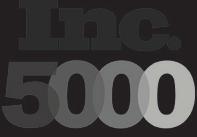


BOB HELBIG Energage
The 2024 presidential election served as a lightning rod for bigger issues in the workplace. New research by Energage shows a silent divide across which employees face challenges discussing political and social issues on the job.
In a pre-election survey, 82 percent of employees said their coworkers respect differing values but only 65 percent thought that respect extended to political beliefs. Even more eye-opening, less than a quarter of employees felt comfortable sharing their political opinions at work — and only 21 percent agreed that most of their coworkers share their political beliefs.
This uncertainty leaves HR leaders, managers and team leaders with a critical challenge: breaking the silence and fostering an environment where open, respectful dialogue isn’t just allowed but encouraged.
Energage collected feedback from 9,000 responders nationwide in August and September 2024. Many (41 percent) said employees don’t raise controversial topics. Another 24 percent said employees discuss topics with those who share similar views.
Where there is fear or unease about discussing certain topics, the national elections and LGBTQ+ issues are the most prominent source of discomfort.
“It’s hard to create a safe place when there are so many different issues and conflicts happening out in the world at the same time,” one responder said. “It’s to be expected that employees will bring some of that anxiety with them everywhere they go, including into the workplace.”
Survey finds incivility and isolation are affecting workplaces, too

In a pre-election survey, 82 percent of employees said their coworkers respect differing values but only 65 percent thought that respect extended to political beliefs.
• 35 percent of organizations have experienced issues with incivility among employees at work.
• 21 percent of responders were concerned the 2024 presidential election caused discord or negatively impacted relationships at their organization.
• 43 percent are concerned that political divisions are negatively impacting employees’ emotional and mental well-being.
• 53 percent are concerned about other societal conflicts and issues negatively impacting employees’ emotional and mental well-being
• 14 percent indicated employees vocally share their opinions on contentious, non-work-related topics. (This may suggest that a small portion of employees are stirring the pot with incivility.)
• 74 percent believe their organization is diverse in terms of politics, race/ethnicity, LGBTQ+, etc.
• 43 percent believe some people in their organization might feel isolated or excluded due to one
Twenty-one percent of responders were concerned the 2024 presidential election caused discord or negatively impacted relationships at their organization.
or more aspects of their identity, such as political beliefs, religion, and race/ethnicity.
When it comes to addressing conflict, employees reported a wide range of approaches. Most (76 percent of organizations) invest in conflict resolution training, but not everyone is receiving it. Training for all employees (42 percent), managers (40 percent) and human resources (38 percent) were most common.
“We are providing guidance for leaders on how to defuse contentious conversations, and we are offering all associates a series of sessions to encourage civility and respect in all conversations,” one responder said.
How do organizations address non-work issues? Most take a relatively passive approach, emphasizing the importance of respect
and values. Few actively facilitate or encourage direct conversations, and even fewer bar conversations.
Most (69 percent) emphasized showing mutual respect. Others (58 percent) emphasized sticking to the organization’s values and mission. Only 19 percent said they facilitate conversations on contentious issues.
Barriers to civility in the workplace include:
• Lack of leadership commitment and accountability. Leaders need to lead by example and hold people accountable for their actions.
• Workplace division and polarization. Political and social divisions create tension among employees. These differences fuel workplace friction and strained relationships.
• Communication challenges. Many survey responses highlighted issues such as unclear expectations, limited open dialogue, and challenges in delivering the right information at the right time.
• Remote work and social isolation. When people don’t work in the same space, it can create problems building trust, allowing casual interactions, and assessing employee well-being.
• Bias, preconceived notions, and misinformation. This is particularly true regarding race, politics, and differing communication styles.
Here are some tips for fostering a civil and psychologically safe workplace:
• Train on inclusivity, diversity, equity and management to equip employees and leaders with the skills necessary to foster a respectful environment.
• Encourage open communication and discussions. Foster a culture of candor and curiosity through open discussions and listening sessions.
• Create employee resource groups (ERGs). These can provide a platform for employees from diverse backgrounds to share experiences and support each other.
• Provide team building and collaboration opportunities. These can build trust and camaraderie, which are essential for a psychologically safe space.
• Promote respect and organizational values. By aligning actions and behaviors with organizational values, companies can create a culture that promotes both civility and safety.
Bob Helbig is media partnerships director at Energage, a Philadelphiabased employee survey firm. Energage is the survey partner for Top Workplaces.














































